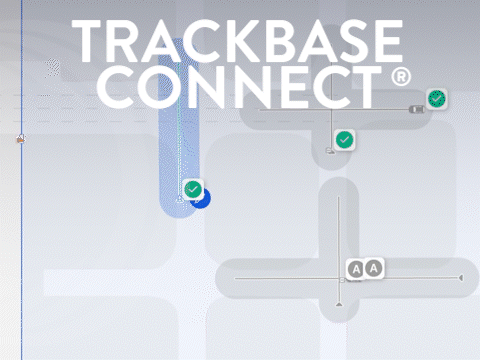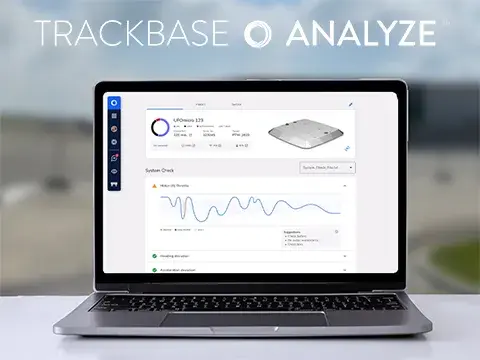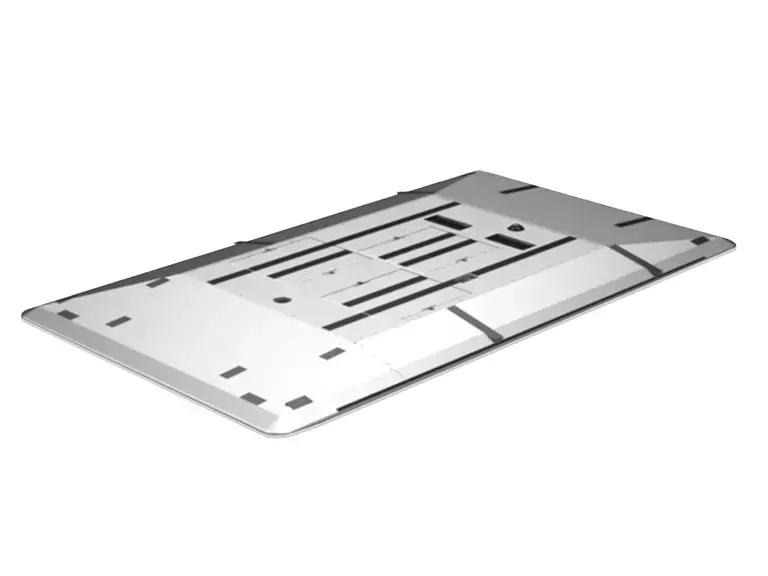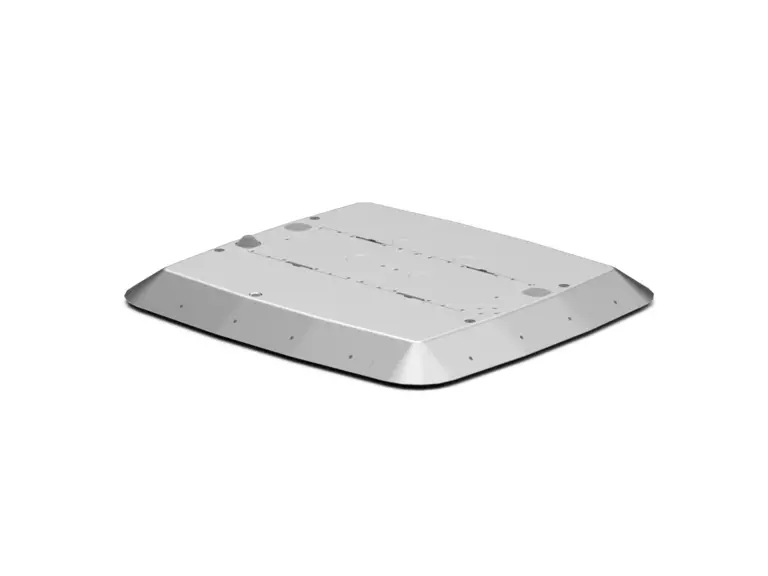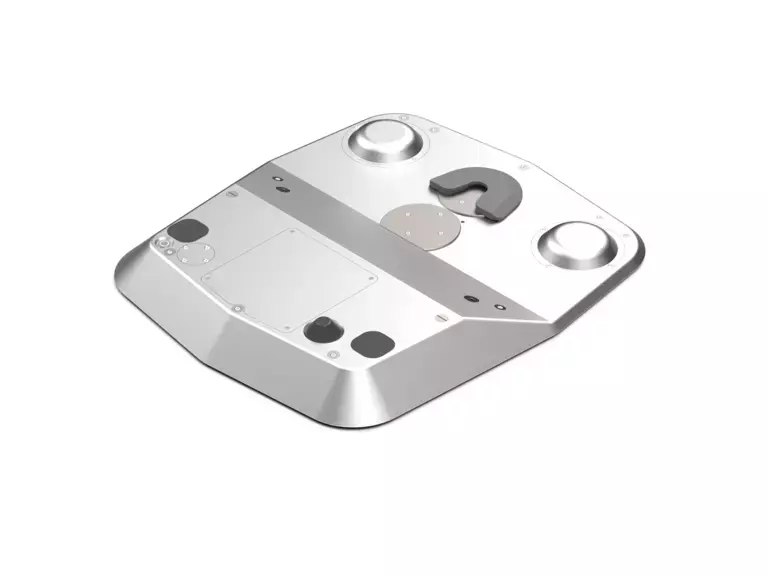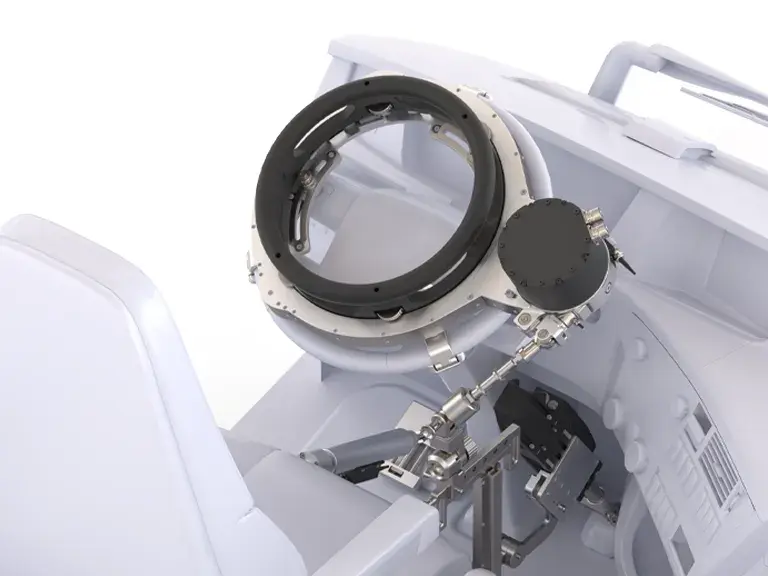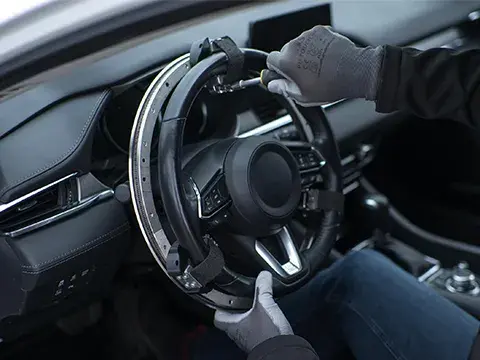Advanced Driver Assistance Systems (ADAS) have evolved significantly, and along with this progress, expectations for testing these systems have also increased.
The introduction of the Euro NCAP 2026 protocols marks a substantial shift in evaluating vehicle safety, emphasizing proactive rather than reactive responses. Systems must now predict, adapt, and effectively respond to complex and rapidly changing scenarios, particularly when vulnerable road users (VRUs) are involved.
At Humanetics, we fully grasp the responsibility and the critical importance of getting this right.
As testing becomes more rigorous and real-world-oriented, OEMs, Tier 1 suppliers, and proving grounds need tools that not only meet the new requirements but help teams get ahead of them.
In this guide, we’ll break down what’s changing, why it matters, and how we can help you navigate the transition with confidence.
What's Changing in EURO NCAP 2026
Euro NCAP 2026 is raising the bar across the board. The focus has shifted from basic detection to full situational awareness, predictive response, and performance under real-world conditions. A few of the biggest updates:
EXPANDED CRASH AVOIDANCE SCENARIOS
In Euro NCAP 2026, VRU tests are absorbed into broader Crash Avoidance categories:
- Frontal Collisions – ≥10 km/h, including most VRU and C2C
- Low-Speed Collisions – <10 km/h, “Start from Stop”
- Lane Departure Collisions – all LSS tests
The shift isn’t just complexity, it’s scale. CCRb alone expands from 4 to 77 variations with higher speeds, new overlaps, and tougher conditions. Overall, the test count nearly doubles, demanding robust performance across a wider range of real-world scenarios.
NIGHT AND LOW-VISIBILITY TESTING
Vehicles now need to detect and react to VRUs in limited lighting conditions. That includes active and passive infrared detection, scenarios with partial visibility, and accurate recognition in poor weather or low light.
OCCLUSION AND PARTIAL VISIBILITY
New scenarios challenge systems to recognize road users partially hidden behind other vehicles, street furniture, or roadside structures. These situations demand higher fidelity in object detection and path prediction.
DYNAMIC SCORING
It’s no longer about pass/fail. Scoring now includes:
- Time to react
- Precision of avoidance maneuvers
- How well the system navigates overlapping risks
Vehicles may face multiple simultaneous threats—like a cyclist overtaking on one side while a pedestrian emerges on the other. Systems are judged on how effectively they respond under pressure.
SWARM TESTING REQUIREMENTS
Swarm testing shifts the focus from isolated scenarios to fully integrated environments, emphasizing how different road users interact in motion. This evolution challenges test systems to capture the complexity of real traffic flows with high precision and reliability.
Why it matters: Risk, Readiness, and Reputation
For safety and engineering teams, Euro NCAP 2026 isn’t just a compliance issue; it’s a strategic one. Ratings in these new tests will directly influence brand trust, market positioning, and consumer confidence. And the bar is high.
The expanded scenario matrix, combined with tighter scoring criteria and complex setups, means longer test cycles, higher costs, and less margin for error. Proving ground availability is already tight. A failed run or equipment issue can result in missed timelines, program delays, or rework that consumes launch windows.
- To stay competitive, you need: A smarter, faster testing process
- Scenario templates aligned to protocol specifics
- Real-time diagnostics to reduce downtime
- Reliable, repeatable performance across every actor and system
That’s where Humanetics comes in.
Navigate Euro NCAP 2026 With Humanetics
From robotic targets to vehicle control systems, scenario design tools to real-time diagnostics, our Active Safety ecosystem provides a full suite of integrated solutions that align with both the letter and spirit of Euro NCAP 2026.

We’ve engineered a connected ecosystem to support every phase of the Euro NCAP 2026 process, from scenario planning to diagnostics, robotic execution to ongoing support.
1. Test Scenario Setup & Automation
With TrackBase Connect® and our NCAP Scenario Library, we simplify the testing workflow from end to end.
- Drag-and-drop scenario creation—no coding required
- Access to 1,100+ pre-configured, regularly updated Euro NCAP scenarios
- Ability to clone and modify scenarios for internal R&D or specific edge cases
- Integration across robotic targets, vehicles, and environmental elements
These tools eliminate setup errors, improve reproducibility, save time (up to 90%), and give engineers more control over how they deploy and evolve test campaigns.
2. Real-Time Diagnostics and Predictive Monitoring
Unplanned downtime is one of the biggest hidden costs in ADAS testing. That’s why we developed TrackBase Analyze™—a real-time monitoring platform that keeps your test systems running smoothly.
- Tracks usage patterns to anticipate maintenance needs
- Flags early-warning system health indicators
- Provides live remote support and over-the-air software updates
This means fewer disruptions, more uptime, and better utilization of tight proving ground slots.
3. Robotic Platforms Built for What’s Next
The hardware behind your testing matters more than ever. We’ve designed our UFO platforms and DrivingRobot modular (DRm) to handle the exact conditions outlined in the 2026 protocol.
UFO Platforms:
| DRm:
|
Whether you’re testing VRU avoidance at high speeds or navigating tight reaction windows in an urban simulation, our platforms deliver consistent, repeatable performance.
4. Service, Support, and Lifecycle Coverage
Humanetics service packages protect your investment and keep your systems test-ready.
- Remote Support – Fast access to specialists for troubleshooting and diagnostics.
- Maintenance & Inspections – Regular service and calibration to maximize uptime.
- Battery Health Checks – Annual evaluations with temporary spares provided.
- Software Updates – Twice-yearly updates to stay aligned with evolving protocols.
- Acceptance Testing – Post-service validation to confirm peak performance.
With regional teams and global coverage, we keep your systems reliable and your testing on schedule.
Interested in More Content Like This?
Subscribe to the Humanetics Pulse newsletter to learn more about Humanetics Products, News, and Industry Updates.
Be Ready. Not Just Compliant
Euro NCAP 2026 isn’t just about passing a set of tests—it represents a shift toward intelligent active safety systems that can anticipate and react to real-world complexity.
Meeting that challenge requires more than protocol updates. It takes an integrated approach that connects scenario design, robotic execution, diagnostics, and lifecycle support into one ecosystem.
Humanetics delivers the platforms, driving robots, monitoring tools, and automation that allow engineering teams to design, execute, and validate every scenario with confidence.
Whether you’re refining VRU avoidance at highway speeds or proving algorithm performance in complex urban simulations, we provide the tools and support to make testing repeatable, reliable, and fully aligned with Euro NCAP 2026.
Make it real. Make it repeatable. Make it count.
Glossary of terms:
- ADAS – Advanced Driver Assistance Systems
- VRU – Vulnerable Road User
- LSS – Lane Support Systems
- CCRb – Car-to-Car Rear braking
- CBNAO – Car-to-Bicyclist Nearside Adult Obstructed
- NCAP – New Car Assessment Program
- AV – Autonomous Vehicle
- PTW – Powered Two-Wheeler
For a complete list of acronyms and technical terms, visit the Humanetics Full Glossary of Terms
Speak to our experts
Fill out the below form and one of our experts will contact you

Markus Schmidl
Markus Schmidl joined the Humanetics team in 2012 with the goal of taking a thorough look at the product offerings and answering the question – how can we make these products even better than they already are? With his background in printing press machine sales at Heidelberger, Markus already knew that in a machine-driven workflow, maximum efficiency is critical to success.





